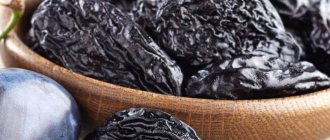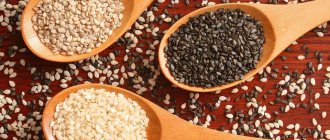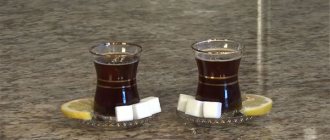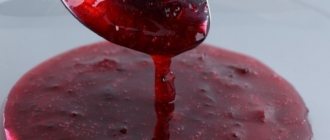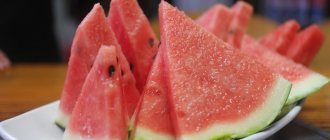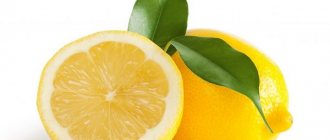Description of the berry
Lingonberry is an evergreen low-growing shrub that has red, sweet and sour fruits. The berries of the plant have healing properties. They help replenish resources for vitamin deficiency, improve the functioning of the immune system and strengthen the entire body.
A decoction of lingonberry berries has pronounced bactericidal and disinfecting properties. The product has a diuretic effect, has choleretic properties and copes with parasites.
Lingonberries can be consumed during pregnancy. It helps to avoid the development of anemia or neurosis. You can make delicious compotes and fruit drinks from the fruits.
The berries contain many vitamins B, A, P, E, C. The product also contains calcium, magnesium, and phosphorus. It contains manganese, sodium, and iron. Lingonberries have high biological activity. It contains a large number of active substances - essential oils, tanning components, phenols.
Is it possible to have lingonberries during breastfeeding?
During lactation, the female body requires special nutrition with vitamins, micro- and macroelements. Lingonberry can be a worthy source of such healing properties, because it has a unique composition. In the absence of contraindications, successful enhancement of the immune system and improvement of the functioning of all organs is guaranteed.
After introducing lingonberries into the diet, they can be consumed without any fear. In addition, the following benefits are noted for nursing young mothers and their infants:
- effective prevention of any colds and flu;
- increased appetite with its initial absence;
- general improvement in well-being and health;
- elimination of temporary pain in the stomach, spasms and intestinal colic;
- prevention of edema due to its mild diuretic effect (lingonberry tea is the most useful in this case);
- the minimum calorie content of lingonberries (43 kcal), as a result of which, in many situations, lingonberry dessert will not lead to the addition of extra pounds;
- improving mood and preventing postpartum depression.
If the baby is not allergic to lingonberries, the sour and bright berry will definitely help strengthen its immunity and successful development.
If during pregnancy a woman regularly ate lingonberries, the fruits can be included in the diet from the first days of the baby’s life. In other cases, it is best to wait 1 - 3 months.
It is imperative to follow certain recommendations to facilitate the safe introduction of lingonberries into the diet of a nursing mother.
- sweet and sour berries are best combined with food, since otherwise the gastrointestinal tract will face unnecessary stress;
- Lingonberries can be combined with any dishes and even used for making desserts and baking. The main requirement is that the woman or her child is not allergic to the above products;
- Freshly prepared lingonberry juices will be especially beneficial. If desired, you can add pear, carrot, apple to their composition;
- Lingonberry leaves are an ideal component for preparing not only tea, but also green borscht and vegetable salad. Any dish will acquire harmonious shades of taste;
- The first couple of times it is recommended to try fresh lingonberries. Subsequently, the introduction of a new product is best done with the help of compotes and teas. To do this, you need to put up to 7-10 berries in a cup with tea leaves and infuse the drink. Of course, you can make juice, fruit drink or compote based on lingonberries;
- the increase in the number of berries should be gradual only if the baby is not allergic. The daily norm is one hundred grams, the weekly norm is four hundred;
- After completely introducing lingonberries into the diet, you can fully consume not only drinks, but also fresh berries. In this case, you should still adhere to the daily and weekly limits.
Many young mothers note the beneficial effect of lingonberries on the lactation process. Hot drinks based on healing berries are especially effective, as they help activate the functions of the milk ducts.
Precautionary measures
When eating lingonberries while breastfeeding, it is important to remember a sense of proportion. Healthy women can eat fruits in different types. They can include fruit juice, jam, compote in their diet, or eat fresh berries.
However, when consuming lingonberries during lactation, you should exercise some caution:
- The fruits have a red tint. This means that they can cause allergies in infants.
- The berries have a sweet and sour taste, which can negatively affect the taste of milk. Children don't always like this.
- Lingonberry has diuretic properties. Excessive amounts of berries will reduce breast milk synthesis.
- The fruits are distinguished by high biological activity. Therefore, they can provoke flatulence, colic, diarrhea, and regurgitation in children.
- Lingonberry juice has pronounced tonic properties. For an infant's immature nervous system, the effect of the drink may be too strong. This causes the child to become hyperactive and disrupt sleep and well-being.
Therefore, pediatricians recommend that nursing mothers drink weak fruit juice or compote. This is allowed to be done when the child turns 2 months old. You can drink a maximum of 1 glass of drink per day. After 7-10 days you need to take a break.
Is it possible to eat lingonberries while breastfeeding?
Women during lactation are not recommended to eat berries and fruits of bright colors , as they are considered very allergenic. Considering that lingonberries have a rich red color, they can cause a rash, redness of the skin or other allergy symptoms in babies after eating the berries by a woman who is breastfeeding.
To reduce risks, it is better to introduce the product into the diet of a nursing mother no earlier than 3 months of the child’s life. They begin to consume fruits in minimal quantities, while simultaneously monitoring the reaction of the baby’s body. Initially, a nursing woman can eat 1 berry in the first half of the day in order to determine whether the baby has an allergic reaction before the evening.
Important! Sometimes signs of allergy appear 1-2 days after breastfeeding, so you should not eat lingonberries for 2 days after the first dose.
If the negative consequences of eating lingonberries do not appear, you can start eating the berry in small quantities daily. If the baby develops allergy symptoms, the berry is completely excluded from the mother’s diet, with repeated introduction after 30 days.
To reduce the effect of the allergenic components of berries on the child’s body, it is better for nursing women to drink lingonberry juice or compote, first diluting the finished drink with water.
An excellent option, if your baby has allergies, is to use tea or decoction based on lingonberry leaves, which are absolutely safe for the body.
Beneficial features
Lingonberries contain many valuable vitamins and microelements that help perform important tasks:
- preserve vision;
- improve the condition of the dermis;
- normalize the functions of internal organs;
- activate metabolic processes;
- regulate the functioning of the nervous and circulatory systems, normalize blood composition;
- strengthen the immune system and prevent viral infections;
- cope with swelling and remove excess fluid from the body;
- achieve antibacterial action;
- eliminate neurosis;
- cleanse and rejuvenate the body;
- cope with constipation;
- reduce fever and ease the course of the flu;
- cope with anemia;
- eliminate fatigue and irritability.
The benefits come from the fruits and leaves of the plant. If pathologies develop, it is recommended to take lingonberry juice. But during lactation, natural juices should be mixed in equal parts with water. This helps minimize the risk of allergies and digestive disorders in the child.
Benefits of lingonberries for a woman’s body
The medicinal properties of lingonberries are determined by the high level of vitamins and various microelements that are present in the berries and leaves:
- vitamins B, C, E;
- citric, salicylic and malic acids;
- pectin;
- carotene;
- iron, manganese, potassium, phosphorus.
It is not surprising that lingonberries are immediately beneficial for breastfeeding women.
Lingonberry leaves boast the following valuable components:
- linoleic, tartaric, carboxylic, quinic acids;
- vitamin C;
- tannins.
The bright berry helps maintain energy and strength, the ideal state of the immune system. This turns out to be truly important for those women who try to fully breastfeed their babies.
In order for lingonberries to achieve their maximum benefits, they should be included correctly in the diet. A variety of dishes and drinks based on this unique berry deserve special attention.
Young women are advised to eat fresh berries, drink freshly prepared juices and make fruit drinks. If lingonberry leaves are used, it is allowed to brew them with boiled water to make tea. If desired, lingonberry tea can be made even more useful, because you can add a teaspoon of natural honey or a slice of lemon to it to increase nutrients and support the immune system. Drinks such as freshly prepared juice, fruit drinks, tea are ideal not only for the warm, but also for the cold season.
Lingonberry leaves and berries can be added to vegetable salads and even soups. Familiar dishes will immediately acquire a new taste with spicy notes. As you might guess, the enrichment with valuable vitamins and microelements will manifest itself even more.
Fresh berries are ideally included in food. As you know, during breastfeeding, mothers give their babies vitamins and minerals from their bodies. For this reason, lingonberries turn out to be an ideal product that contributes to the successful completion of the task.
Young women can note the amazing benefits not only for the immune system and their baby, but also for beauty.
Eating lingonberries helps eliminate the following problems:
- fragility of marigolds;
- bone fragility;
- destruction of tooth enamel and development of caries;
- hair loss.
The bright berry can be truly beneficial for young mothers.
Berry composition
Lingonberries contain the following components:
- Vitamin A – promotes tissue restoration, improves vision and skin structure. The product helps prevent hair loss.
- Vitamin B1 - restores the functions of the nervous system and brain, has a beneficial effect on the functioning of the heart and muscle tissue, normalizes digestion and restores metabolic processes.
- Vitamin B2 – helps cope with stress and increased workload, takes part in the breakdown of protein elements, and normalizes the condition of the dermis.
- Vitamin B9 – helps cope with anemia, improves skin pathologies, strengthens the immune system and normalizes intestinal functions.
- Vitamin C – helps restore skin cells, ligaments, and tendons. The product helps strengthen blood vessels, improve immune function and cope with viruses. The vitamin improves mood and saturates with vital energy.
- Vitamin E - restores blood clotting, slows down cell aging, helps normalize hormone balance.
- Vitamin PP – has a beneficial effect on the function of the cardiovascular system, maintains the health of the dermis, and improves the functioning of nerve cells.
- Calcium - helps cope with muscle spasms and cramps, helps strengthen tooth enamel and bones.
- Magnesium – cleanses the body and removes toxic substances. The product also increases resistance to stress factors and prevents the appearance of kidney stones.
- Sodium - serves as a reliable prevention of stroke and heart pathologies, takes part in metabolism.
- Potassium – improves brain function and memory, helps cope with stress and anxiety.
- Phosphorus – ensures the formation and development of bone tissue and teeth, normalizes memory and concentration.
- Iron – helps strengthen muscle tissue, restores metabolism and ensures oxygen distribution.
Berries to increase lactation
Most often, lingonberries are used to make fruit juice. This drink is allowed to be drunk during lactation. To prepare the product, you need to take a glass of berries per 1 liter of water.
Pour boiling water over the fruits and cook over low heat until boiling. Then the composition must be removed from the stove, add sugar and cover with a lid. Cover the pan with a blanket and leave for 2 hours. Strain the finished product and put it in the refrigerator.
It is recommended to put lingonberries in different dishes. It is used to improve the taste of veal, poultry, rabbit, and fish. The fruits are also used to prepare marinades for meat. They are used to make sauces that are served with ready-made dishes.
Contraindications for drinking fruit juice for a nursing mother and baby
One of the main disadvantages of lingonberry juice is its high allergenicity. Unfortunately, many children are allergic to lingonberries. In addition, there is a possibility of unwanted reactions to sugar, honey, cinnamon, lemon and other additives in lingonberry juice.
It is not recommended to consume lingonberry juice for mothers who have diseases of the digestive system in the acute stage, as well as for people with high stomach acidity. This fruit drink is not advisable for people with low blood pressure and kidney disease. In addition, too frequent and prolonged consumption of lingonberry juice is contraindicated even for a healthy body.
Concomitant use of this drink with certain medications may have a negative effect. Therefore, when taking any medications, you should consult with a specialist about the possibility of consuming lingonberry juice.
How to choose the right one
To choose high-quality fruits, you should pay attention to the following features:
- Ripe berries are red and yellowish in color.
- The fruits should have a soft texture and elastic skin. Berries that are too soft are overripe.
- The fruits ripen in the fall. It is better to pick lingonberry leaves in the second half of spring.
- Fruits should be collected in safe places. Berries quickly absorb and store dangerous components for a long time.
- Only whole and dry fruits are suitable for consumption.
How to properly store lingonberries
You can store lingonberries in different ways:
- When frozen, the fruits retain their healing properties for a long time. Therefore, you can safely keep them in the freezer.
- If freezing is not planned, the fruits should be kept in a wooden container. The berries need to be sorted out and poured into a layer of maximum 30 cm. Cover the top with a thick cloth.
- Fresh lingonberries can be stored for 2-3 months at a temperature of 3-5 degrees. Berries can be kept indoors for 10 days.
- Dried fruits can be stored for a long time. They should be placed in linen bags, which are recommended to be kept in a dry and warm place. Lingonberries need to be ventilated every 2 months.
Lingonberry juice recipe for nursing mothers
There are many recipes for lingonberry juice. To prepare it, you can use various additives (sugar, honey, cloves, cinnamon, citrus fruits, etc.). However, it should be remembered that you can only use those ingredients that have previously been safely introduced into the diet. Here is one of the safest lingonberry juice recipes for breastfeeding.
Required Ingredients
- Lingonberries -200 g;
- Water -1.5 l;
- Sugar, honey, etc. - to taste.
Cooking process
- Sort out the lingonberries. Rinse thoroughly with water.
- Extract the juice using a juicer or gauze.
- Pour the remaining berries with water and place on the stove.
- Boil for about 5 - 7 minutes over medium heat.
- Strain the resulting liquid.
- Add flavoring agents (sugar, honey, etc.).
- Cool.
- Pour in the previously squeezed juice and stir.
- Store the finished drink in a cool place for no more than 3 days.
Recently, the question has become quite common: is it possible to drink lingonberry juice while breastfeeding? After all, the high allergenicity of this drink frightens young mothers. However, in this case, the risk justifies the cost, because this drink has a huge number of beneficial properties. This does not mean that you need to drink it often. But in the absence of allergic reactions in the baby, two to three glasses a week will be very beneficial for the health of the woman and the baby.
How to brew leaves correctly
To make healthy tea or decoction based on lingonberry leaves, it is recommended to use dried raw materials. Thanks to this, you will be able to get a rich drink.
To begin with, it is recommended to chop the leaves. To do this, you should use a coffee grinder. Place 1 small spoon of the product in a thermos and pour 1 liter of boiling water. Leave to infuse for 40 minutes.
In addition to tea, you can make a decoction of lingonberry leaves. To do this, pour 500 ml of boiling water over 1 large spoon of dried raw materials and cook for 10 minutes over low heat. Strain the finished product and drink 2-3 times a day.
How to introduce lingonberries into the diet of a nursing mother
Lingonberries should only be eaten from the 3rd month of breastfeeding. You need to start eating berries gradually, eating just one piece at first. After you eat the berry, wait 2 days and see if your baby has a reaction. If everything is in order, you can safely continue to eat berries, gradually increasing their quantity.
If a child develops an allergy, it is worth giving up the berries for another month. After a month, the child’s body becomes stronger and the menu available to a nursing woman also expands. The least allergic reactions are caused by lingonberry juice and compote, and tea based on lingonberry leaves is completely safe for the body.
Nursing mothers' experience of eating lingonberries
Based on the experience of nursing mothers, lingonberries should not be eaten as a dessert or as an addition to food. It is worth eating the berry on an empty stomach before meals.
Acceptable quantity
As with any other product, these berries have their own permissible dose. If a nursing mother drinks more than 3 glasses of lingonberry drinks per day, or simply drinking them at the same time, it will result in much more milk being produced than required, and it is more likely to harm the baby rather than benefit it. You need to know a sense of proportion and when eating just lingonberries, do not abuse them. Half a glass is enough for a nursing woman.

